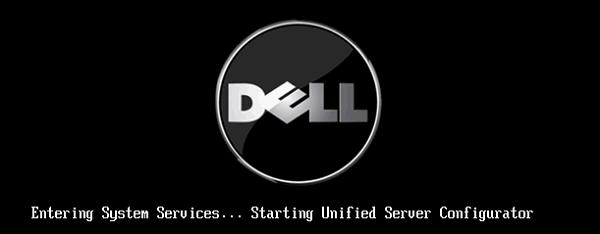Ubuntu (Linux distribution)

From Wikipedia, the free encyclopedia
Ubuntu (IPA: [ ubuntu] in English,[2] IPA: [ùbúntú] in Zulu) is a Linux distribution for desktops, laptops, and servers. It is based on Debian GNU/Linux. Ubuntu aims to provide an up-to-date yet stable operating system for the average user, and features a strong focus on usability, regular releases, and ease of installation. Ubuntu is sponsored by Canonical Ltd, owned by South African entrepreneur Mark Shuttleworth. The name of the distribution comes from the southern African concept of ubuntu which may be rendered roughly as “humanity toward others”, “we are people because of other people”, or “I am who I am because of who we all are”, though other meanings have been suggested.[3] This Linux distribution is named Ubuntu as it is expected to bring the spirit of Ubuntu to the software world. Ubuntu is free software and users can share it among each other.
Kubuntu and Xubuntu are official subprojects of the Ubuntu project, aiming to bring the KDE and Xfce desktop environments, respectively, to the Ubuntu core (Ubuntu uses GNOME for its desktop environment). Edubuntu is an official subproject designed for school environments, and should be equally suitable for children to use at home.[4] Gobuntu is an official subproject that is aimed at adhering strictly to the Free Software Foundation’s Four Freedoms.[5] The newest official subproject is JeOS. Ubuntu JeOS (pronounced “Juice”) is a concept for what an operating system should look like in the context of a virtual appliance.[6]
Ubuntu releases new versions every six months, and supports those releases for 18 months with daily security fixes and patches to critical bugs. The most recent version, Ubuntu 7.10 (Gutsy Gibbon), was released on 18 October 2007. There are also Long Term Support (LTS) releases, which have three years support for the desktop version and five years for the server version. The most recent major LTS version, Ubuntu 6.06 (Dapper Drake), was released on June 1, 2006. The first update, Ubuntu 6.06.1, was released on August 10, 2006, while the second, 6.06.2, was released on January 21, 2008.[7] The next major LTS version will be 8.04 (Hardy Heron), scheduled for release in April 2008. Following this, Ubuntu 8.10 (Intrepid Ibex) is planned for release in October 2008.[8]
History and development process
Ubuntu’s first release was on October 20, 2004, which began by making a temporary fork of the Debian GNU/Linux project.[9] This was done so that a new version of Ubuntu could be released every six months,[10] resulting in a more frequently updated system. Ubuntu releases always include the most recent GNOME release, and are scheduled to be released about a month after GNOME.[11] In contrast with previous general-purpose forks of Debian—such as MEPIS, Xandros, Linspire, Progeny and Libranet, many of which relied on proprietary and closed source add-ons as part of their business model—Ubuntu has stayed closer to Debian’s philosophy and uses free (libre) software most of the time.[12]
The Ubuntu logo and typography has remained the same since that first release. The hand-drawn,[13] lowercase OpenType font used is called Ubuntu-Title and was created by Andy Fitzsimon.[14] The font is distributed under the Lesser General Public License and use with logos derived from the Ubuntu logo is encouraged.[14] The font is available as a package for Ubuntu.[14]
Ubuntu packages have generally been based on packages from Debian’s unstable branch: both distributions use Debian’s deb package format and APT/Synaptic to manage installed packages.
Ubuntu cooperates with Debian—to some extent pushing changes back to Debian,[9] although there has been criticism that this is not happening enough[15] and Debian and Ubuntu packages are not necessarily binary compatible with each other.[16] Many Ubuntu developers are also maintainers of key packages within Debian itself. However, Ian Murdock, the founder of Debian, criticized Ubuntu for incompatibilities between its packages and those of Debian, saying that Ubuntu had diverged too far from Debian Sarge to remain compatible.[15]
There are plans for a branch codenamed Grumpy Groundhog. It will be a permanently unstable development and testing branch, pulling the source directly out of the revision control of the various programs and applications that are shipped as part of Ubuntu. This will allow power users and upstream developers to test up-to-the-minute versions of individual programs as they would appear if packaged for the distribution today, without needing to build packages themselves; it will be able to provide early warning of build failures on various architectures.[17] It is intended that Grumpy Groundhog should merge with Debian Unstable every six months.[18] Grumpy Groundhog has not been made available to the public yet.
Ubuntu is currently funded by Canonical Ltd. On July 8, 2005, Mark Shuttleworth and Canonical Ltd announced the creation of the Ubuntu Foundation and provided an initial funding of USD $10 million. The purpose of the foundation is to ensure the support and development for all future versions of Ubuntu, but as of 2006, the foundation remains dormant.[citation needed] Mark Shuttleworth describes the foundation as an emergency fund in case Canonical’s involvement ends.[19]
During July 2007 at Ubuntu Live 2007, Mark Shuttleworth announced that Ubuntu 8.04 (scheduled for April 24, 2008) would be the next Long Term Support (LTS) release. He also added that Canonical is committed to releasing a new LTS version every two years.
Vendor support
Ubuntu is available pre-installed on computers from a number of different vendors, including Dell, Tesco,[20][21] and System 76. Dell and Tesco have provided this option since 2007, while System 76 has done so since its inception in November 2005.[22] Dell – and now System76[23] – customers are able to purchase 30-day, 3-month, and 1-year support for Ubuntu through Ubuntu’s parent company Canonical. Dell later increased the availability of Ubuntu-based computers by offering them for sale in the United Kingdom, France, Germany, Canada, Spain, and Latin America .[24] Selected Dell machines running Ubuntu 7.10 have free and legal DVD playback capabilities using LinDVD.[25]
Features
Ubuntu focuses on usability,[26] including the widespread use of the sudo tool for administrative tasks.[27] The Ubiquity installer[28] allows installing Ubuntu to the hard disk from within the Live CD environment without the need for restarting the computer prior to installation. Ubuntu furthermore emphasizes accessibility and internationalization, to reach as many people as possible. As of version 5.04, UTF-8 is the default character encoding. The default appearance of the user interface in the current version is called Human and is characterized by shades of brown and orange.
Ubuntu comes installed with the following software: the OpenOffice.org productivity suite, the Internet browser Firefox, the instant messenger Pidgin (formerly known as Gaim), and the raster graphics editor GIMP. Several lightweight card and puzzle games are pre-installed, including Sudoku and Chess. Ubuntu has all networking ports closed by default for added security, although some people choose to run a firewall in order to monitor incoming and outgoing connections.
Ubuntu offers a fully featured set of applications that work straight from the standard install, but nonetheless fits on a single CD. The live CD allows users to see whether their hardware is compatible before installation to the hard disk. The live CD is then used to install Ubuntu.[29] CDs are mailed free to anyone who requests them, and CD images are available for download. The Ubuntu live CD requires (for version 7.10) 256 megabytes of RAM, and once installed on the hard disk, Ubuntu needs four gigabytes of hard disk space.[30] An alternate install disc using the standard debian-installer in text mode is available for download only, and is aimed at people with lower system specifications, computer dealers selling systems already installed with Ubuntu, and for complex partitioning including the use of LVM.[31]
For Ubuntu there are tools available to create a specific installation CD or DVD.
With the release of Ubuntu 7.04 in April 2007, the Ubuntu installation process changed slightly. It now supports migration from Microsoft Windows.[32] The new migration tool, called Migration Assistant, imports Windows users’ bookmarks, desktop background (wallpaper), and settings for immediate use in the Ubuntu installation. [33]
In any case, the user can install Ubuntu with the Vistathemes and start menu (called Ubuntu-Vista). [34]
With Wubi, it is possible to install Ubuntu on a Windows partition, without using an ISO file. It also makes use of the migration tool which imports Windows users’ configurations. Wubi was born as an independent project, as such 7.04 and 7.10 are unoffical releases. But since 8.04 the code has been merged within Ubuntu and since 8.04-alpha5, Wubi can also be found in the Ubuntu Live CD. [35]

